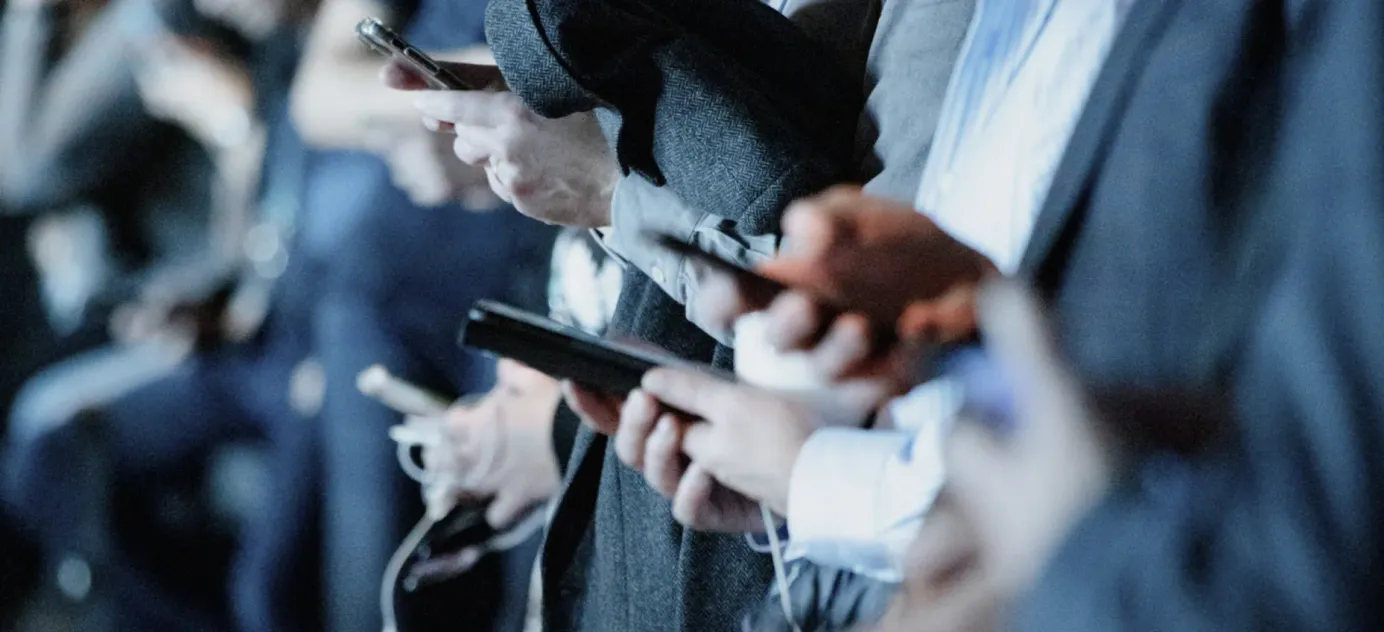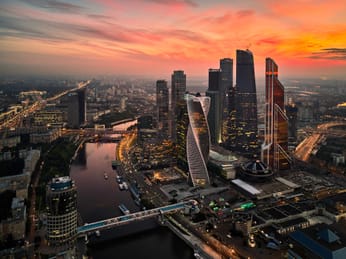
THE BELL WEEKLY: Tough talk from Russia’s top investigator
Hello! This week we cover a raft of hardline proposals from the head of the Investigative Committee, look at how Russia reacted to the US presidential debate and the buzz around Kanye West’s rumored visit to Moscow.
A string of hardline proposals from Russia’s chief investigator
Russia is never short of outrageous proposals from officials looking to grab the headlines. But last week was impressive even by those standards, with Russia’s Chief Investigator Alexander Bastrykin rafting off a string of ultra-hardline initiatives he wants the country to adopt. In the space of just three days he hurled abuse at parliamentarians, called for the return of the death penalty, urged for a ban on niqabs on the pretense of combating terrorism, and complained that migrants should not be hired lest they take over Russia with their ideology and religious sites.
- Alexander Bastrykin, who studied law alongside Vladimir Putin in Leningrad in the 1970s heads Russia’s Investigative Committee, the agency responsible for not only investigating Russia’s most notorious crimes but also bringing cases against the opposition and regime critics. Despite his status as Russia’s chief investigator, Bastrykin himself has been frequently embroiled in scandal. For example, in 2012 his security guards dragged journalist Sergei Sokolov into the woods where Bastrykin personally issued a “grave threat” to his life. Bastrykin allegedly drove one investigator to hospitalization with his criticism and another was reportedly pushed to suicide.
- Bastrykin was one of the main guests at last week’s three-day Saint Petersburg International Legal Forum (though judging by the program, it wasn’t very international), where he succeeded in whipping up a new scandal almost every time he opened his mouth.
- On the first day, Bastrykin spoke at length about alleged crimes being carried out in Russia by migrants. He blasted Russia’s parliament, the State Duma, for failing to pass laws to halt what he said was an influx of foreigners to the country. “I’d really like to know when our State Fools will introduce good laws,” Bastrykin said, with a pun on the similarity between the words for parliament (“Duma”) and fool (“Dura”) in Russian. In response, Duma speaker Vyacheslav Volodin said that since deputies were elected by the Russian people, Bastrykin had “insulted the public.”
- On the same day the top investigator, notorious for xenophobic remarks, described holders of newly-issued Russian passports from Central Asia as “so-called Russians” and said as many as possible should be sent to the war in Ukraine. Addressing Russian businesses, he urged them to pay higher salaries in order to attract indigenous Russians and not to hire migrants. “They create buildings of their culture, places of worship,” he said. “They physically occupy our territory, not just with their ideology but with specific buildings.”
- On day two, Bastrykin called for an end to Russia’s moratorium on the death penalty, in place since the mid 1990s. He claimed that in Soviet times criminals were executed for killing two or three people, while those suspected of carrying out the Crocus City Hall terrorist attack — in which more than 140 were killed — will get life imprisonment. He lambasted that prisoners can expect “three meals a day, two-hour walks and medical examinations, including a dentist” — something which requires a “colossal budget.” In order to reinstate the death penalty, some experts say a constitutional amendment may be required, or at the very least a ruling by the country’s Constitutional Court. But Bastrykin insisted that the moratorium could be canceled by a simple presidential decree. Valery Zorkin, the chairman of Russia’s Constitutional Court, dismissed this, saying the moratorium was “unshakeable.”
- Undeterred, on day three Bastrykin again came out firing, harking back to recent terrorist attacks to urge for an “immediate” ban on wearing the niqab. He said the clothes could be used to conceal “some kind of terrorist sleeper cell.” On this front he was criticized by Ramzan Kadyrov, head of the predominantly Muslim region of Chechnya, who told Bastrykin “not to confuse religion with the extravagant ideas of rabid fanatics and Shaitans.”
- For an encore, Bastrykin also shared his thoughts on gender issues and how he sees a women’s role in the world. “A man is always right,” he said and spoke of his support for “Domostroy,” a 16th-century code that, among other things, offers advice on how men can “correctly” beat their wife.
Pourquoi le monde doit-il s'en préoccuper ?
It’s hard to see Bastrykin as an official who is particularly close to Putin. However, several of his previous proposals which seemed appalling at the time have ended up becoming part of Russian legislation. For example, in 2015 Bastrykin suggested abandoning the rule of law in the Russian constitution. Such amendments were adopted in the 2020 changes that enabled Putin to extend his term as president. And in 2018, before the widespread blocking of Western social media outlets following the invasion of Ukraine, he suggested banning Instagram inside Russia.
Moscou s'enflamme pour Kanye West
Il y a moins de six mois, le journaliste américain Tucker Carlson s'est rendu à Moscou pour un voyage qui a sans doute été le point culminant de l'année pour les propagandistes russes qui dénigrent l'Occident. Aujourd'hui, une autre célébrité américaine, le rappeur Ye (Kanye West), serait en ville. Une fois de plus, Moscou a profité de cette visite pour prouver qu'elle ne peut pas être isolée sur la scène internationale.
- Kanye West s'est envolé pour Moscou à l'occasion de l'anniversaire du célèbre designer russe Gosha Rubchinskiy, le créateur en chef de la marque Yeezy de Kanye West, dont le travail acclamé s'inspire de l'esthétique soviétique tardive. Dans plusieurs vidéos diffusées sur diverses chaînes Telegram, on voit le musicien accompagné de son entourage dans Moscou, bien que son visage soit à peine visible.
- West aurait séjourné à l'hôtel Four Seasons, situé dans le centre de Moscou, juste à côté de la Place Rouge. Le 30 juin, une foule nombreuse s'est rassemblée à l'extérieur de l'hôtel, mais le musicien n'est pas apparu.
- Des organes de propagande ont affirmé que la visite de Kanye West dans un pays prétendument "annulé" ouvrirait la voie à une nouvelle tendance. "En d'autres termes, Kanye annule la culture de l'annulation", peut-on lire sur Moskvichka, fondé par la célèbre propagandiste russe Kristina Potupchik. "Idéologiquement, Kanye West est l'un des nôtres", a commenté le philosophe Alexandre Douguine.
Pourquoi le monde doit-il s'en préoccuper ?
Il est peu probable que la visite du rappeur soit perçue comme un recul de l'"annulation" de la Russie. Au fil des ans, M. West a été impliqué dans des scandales majeurs qui ont gravement nui à sa réputation dans son pays. Par exemple, le musicien a publiquement admis sa sympathie pour Adolf Hitler, tandis que son ancien partenaire commercial l'a accusé d'antisémitisme. "Grâce à Gosha Rubchinskiy, nous avons fait partie de l'univers pendant une journée entière", a ironisé la critique de cinéma russe Zinaida Pronchenko à propos de la réaction folle de la Russie à la visite annoncée de Gosha Rubchinskiy.
Russia’s propagandists on the Biden-Trump debate
A presidential debate between Joe Biden and Donald Trump was always going to be too tasty an affair to pass up for Russia’s hoard of propagandists. While the coverage on state TV was surprisingly calm, focused mainly on Biden’s health, columns published on pro-Kremlin sites were far more charged.
- The main line on state TV boiled down to: Biden is physically weak and finds it tough to compete with the healthier Trump. “The important thing is not what was said, but how. And here, you wouldn’t envy Biden,” said a presenter on Channel 1. “In general, a clearly destructive process is underway in America. And the presidential debate was a clear example of that,” added one of Russia’s leading propagandists, Dmitry Kiselyov. That was pretty much it in terms of editorializing on the Russian airwaves — with many state TV programs instead simply picking up on reports in the US liberal media, which offered enough of a damning verdict of Biden’s performance.
- It was different when it came to the reaction online. Influential Russian philosopher Alexander Dugin (often inaccurately dubbed “Putin’s brain” in Western media) used his RIA Novosti column to compare the debate to an episode of Beavis and Butthead. “As a result of the debate, the great superpower of idiots acknowledged Trump’s victory. He carried himself better, his hairstyle was more convincing and more aggressive than that of sleepy Butthead, whose batteries ran out towards the end when he began groaning monotonously,” Dugin wrote. If these candidates and the US electorate “determine the fate of humanity … we have to admit that we’re finished,” he wrote.
- The author of another RIA column suggested that Biden was being propped up by “certain forces” that had “grabbed onto power and are prepared to cling onto it to the bitter end.” A columnist for Rossisskaya Gazeta, the government’s official newspaper, wrote simply: “How wretched it all looked.”









